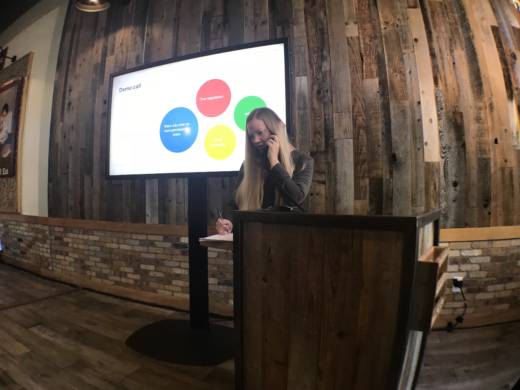In an effort to quell concerns about its newest artificial intelligence technology, Google invited a handful of reporters to a quaint hummus shop in downtown Mountain View to test it out.
The virtual assistant, Duplex, made a huge splash during the Google I/O developer conference in May. It sounded so much like a human that many people thought it was fake. Critics immediately began talking about the dangerous potential of having a robot sound like a real person.
“I think one thing that’s really important to understand about the system, and how it’s built, is what makes it work is that it only is able to do very narrow tasks,” explains Scott Huffman, vice president of engineering for the Google Assistant.
To showcase the scope of this technology, myself and a handful of reporters were each given about a minute and a half to demo the system. I took off my reporter hat and turned into a maitre d’ at Oren’s Hummus Shop, standing at the front of the restaurant answering the phone.
“Hi, I’m calling to make a reservation,” the Google assistant said, sounding like a 20-something woman, perhaps someone I might be friends with.
